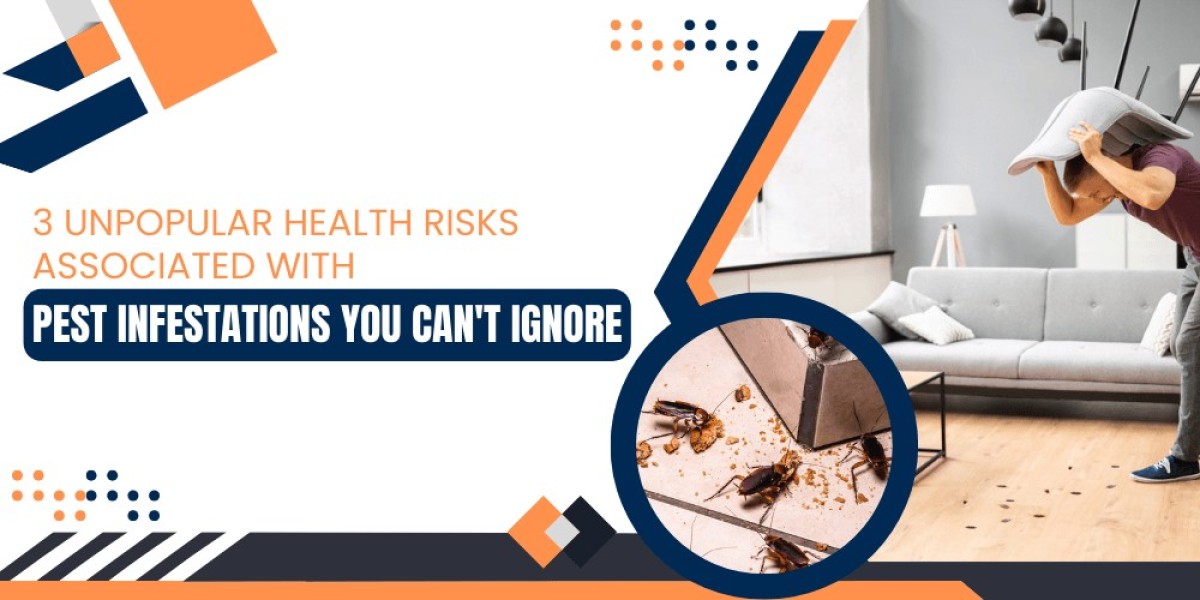Could invisible threats in your home be impacting your health? Most homeowners know the immediate annoyances pest can bring—bites, stings, and allergies are well-known hassles. However, beyond these common irritations, lesser-known, more severe health risks of pest infestations often go overlooked.
In this blog, we will delve into 3 "unpopular" health risks. Read on to discover how to keep your home safe from these risks.
Unveiling Lesser-Known Health Risks
Beyond being a nuisance, pests also pose serious health risks as carriers of various diseases. Understanding the broader implications of health risks of pest infestations is crucial for health and safety. To fully comprehend the risks, consider the following:
- Disease carriers: Many pests, including mosquitoes, ticks, and rodents, can transmit diseases to humans.
- Importance of awareness: It is critical to understand that bugs pose health dangers beyond the pain that bites or stings can cause.
3 Unpopular Health Risks of Pest Infestations
This section will discuss three unpopular yet critical health risks of pest infestations. Read on to read about these critical health concerns.
A. Allergic Reactions and Asthma Triggers
Household pests like dust mites, cockroaches, and rodents are not just unsightly; they are also significant triggers for allergies and asthma. To understand the impact of these common household pests, consider the following:
- Allergy and Asthma Triggers: Dust mites and cockroaches leave behind airborne waste and body parts that can trigger allergies and asthma. Rodents can provoke similar reactions through their dander, urine, and droppings.
- Symptoms Associated with These Triggers: Sneezing, runny nose, itchy eyes, and, in more extreme situations, asthma episodes with wheezing and breathing difficulties are common reactions to exposure to specific allergens.
B. Spread of Disease
Rodents and insect pests are not just annoyances; they are also carriers of several diseases that can endanger human health. The transmission methods and diseases associated with these pests include the following:
- Diseases Transmitted by Rodents and Insects: Hantavirus is known to be carried by rodents, especially deer mice, and can cause severe respiratory infections in people. Ticks, a type of insect, are notorious for spreading Lyme disease, which affects the skin, nervous system, and joints.
- Transmission Methods: Diseases like hantavirus typically spread through inhaling dust contaminated with rodent droppings and urine. Ticks transmit Lyme disease to humans through bites during outdoor activities.
Awareness and control of these pest populations are essential steps in preventing the spread of these diseases.
C. Mental Health Impact
Pests often cause stress and anxiety, which can seriously harm mental health. Pests can have many negative consequences on sleep quality and mental health when they are around all the time. Here are several ways pests can impact your well-being:
- The sight or thought of pests can create unease, anxiety, and fear.
- Dealing with the persistent nuisance of pests can cause chronic stress and sleep disturbances.
- The fear of encountering pests in everyday activities can increase stress levels and avoidance behaviors.
- Lack of quality sleep due to pests' activity can exacerbate stress and affect overall mental health.
Protecting Yourself and Your Family
Since pests can spread illness, harm property, and trigger allergies, keeping a healthy home depends on their prevention. By taking proactive measures, individuals can safeguard their homes and health from the disruptive impact of uncontrolled pest infestations.
These are the key benefits of adopting a proactive approach to pest control:
- Health Protection: Prevents the spread of pest-borne diseases and reduces allergy triggers.
- Property Safety: Minimizes structural damage caused by pests like termites and rodents.
- Cost Efficiency: Reduces the need for extensive and costly extermination procedures down the line.
- Peace of Mind: Ensures a cleaner, safer home environment for you and your family.
Wrapping Up: Unseen Danger
In conclusion, prioritizing pest control is essential for fostering a healthier and happier living environment. By proactively managing and mitigating the health risks of pest infestations in Stewartstown, PA, you can safeguard your family's health and make your house seem cozier.
Moreover, embrace the benefits of a pest-free environment, including enhanced well-being, peace of mind, and prevention of property damage. Take decisive action now to ensure your home remains a safe and delightful haven for your loved ones. Let's all strive to maintain our living spaces clean, secure, and free from unwanted pests.


